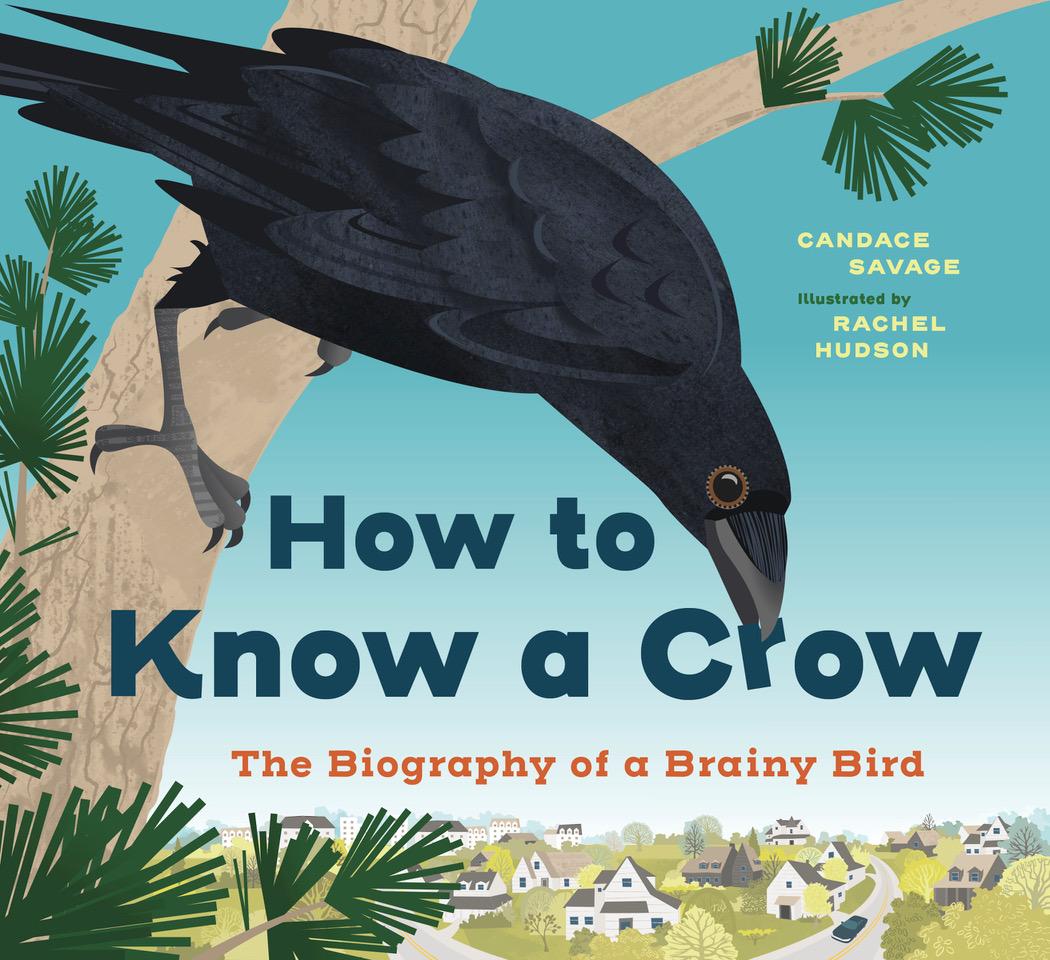How to Know a Crow:
The Biography of a Brainy Bird” by Candace Savage,
illustrated by Rachel Hudson c.2024,
Greystone Kids $21.95 105 pages
The leaves are off the trees, revealing a tantalizing secret. You couldn’t see it before but you can tell now that the branches still support old twigs and other random material. Last spring, these things made a nest that filled with eggs, then baby birds up high. And in the new book,”How to Know a Crow” by Candace Savage, illustrated by Rachel Hudson, you’ll meet one of them. In the spring, crows – scientifically known as Corvus brachyrhynchos, or American Crows – usually look for their own “paradise,” a place with high trees, wide branches, and fields and lawns to forage for food. When they find such a place, they build a large nest with branches and soft ingredients on which to lay eggs. To start this story, there are five eggs in the nest. The first one laid is the first one hatched, and Savage calls the spindly chick “Oki.” It takes a few days before Oki and the other chicks are able to even sit upright. Until then, their eyes are shut.
They have very few feathers but very big mouths: baby crows are basically eating machines, and if another creature approaches the nest, the babies beg for food. Fortunately, Oki’s parents and older siblings are happy to oblige. After about twenty days of life – and after an owl has snatched one of Oki’s siblings – the crow chicks look more like birds. They’re no longer scrawny; they have feathers and they’re able to help keep their nest clean. By this time, local scientists can spot them for identification and later research. As the baby birds become big birds, things get crowded in the nest. Oki “is almost as large as an adult, but she is far from grown up,” even at five weeks old. She plays, which is important for her socialization, and she sees how to forage for her own food. She will learn how to survive in cold weather and she may learn to trust humans. So you say that one of your favorite activities is bird-watching. Without even meaning to, you’ve joined a club with nearly 100 million of your fellow Americans, and “How to Know a Crow” is a book you’ll want. In her author’s note, Candace Savage promises readers that while Oki is an imaginary creature, “Everything that happens in these pages happened to a crow in real life.” Experts in Canada and America were consulted, which gives readers assurance that this isn’t just a story, but a story full of real-life – and that’s not always a happy thing. Savage is honest, adding danger and death into this tale. Fear not: the disappearance of a chick is not belabored, and the real-life aspects of a bird’s life are balanced by tidbits and much more to the tale. Illustrations by Rachel Hudson may tend to kid-ize this book some, but doesn’t lose its charm as a quick and informative read for a grown-up bird-watcher. For you, “How to Know a Crow” is a book you’ll want to keep around your nest.


